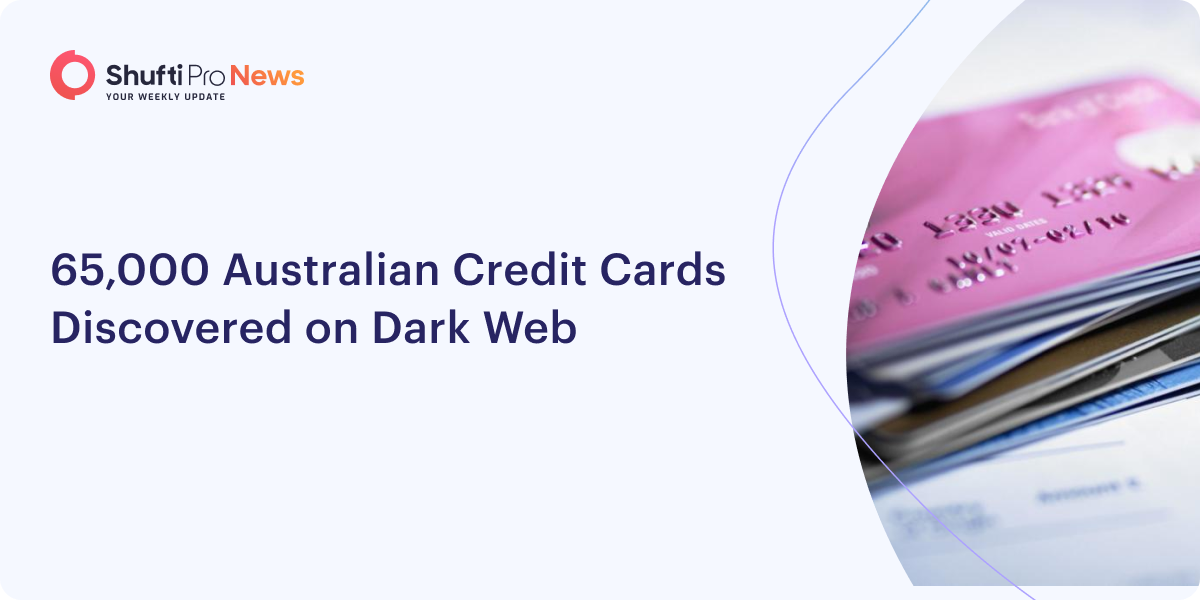65,000 Australian Credit Cards Discovered on Dark Web

A significant proportion of stolen credit cards contained private information such as addresses, telephone numbers, and e-mail addresses, exposing victims to identity theft.
The dark web contained six million stolen payment cards, with two-thirds of them bundling private information like names, numbers, and emails. Australia was ranked second on cyber-security researchers’ fraud risk index after nearly 65,000 credit, debit, and ATM cards were compromised.
NordVPN, the VPN provider responsible for the research, reported that Australian payment cards are sold for an average of $9.82 on the dark web. That are being sold on all eight major dark web marketplaces. According to the report, this digital marketplace thrived on the global issue, which will cause losses of $32.96 billion by 2023.
Adrianus Warmenhoven, NordVPN’s cyber advisor, said: “The cards researchers found are just the tip of the iceberg. The information sold with these cards makes it much more dangerous.”
A total of 65,000 Australian cards were on sale, of which about 28,000 included home addresses, 22,000 telephone numbers, 18,000 emails, and about 200 incorporated dates of birth.
The bundles could therefore enable cybercriminals to commit identity fraud and even abuse the legal system to gain access to more personal information about the victims. Additionally, it explained how the cards were stolen.
“In the past, experts linked payment card fraud to ‘brute-forcing’ attacks — when a criminal tries to guess a payment card number and CVV to use their victim’s card,” Warmenhoven said. “However, most of the cards we found during our research were sold alongside the email and home addresses of their victims, which are impossible to brute force. We can therefore conclude that they were stolen using more sophisticated methods, such as phishing and malware,” he added.
A total of $27.5 million could be earned by cybercriminals from selling the database analysed in the research, the report estimates. The value of the payment card details may exceed the price criminals pay if purchased.
NordVPN’s global risk index ranked Australia higher than Malta, despite over half of the six million compromised cards being issued in the United States. As NordVPN took into account political, financial, and card data to calculate the index, European countries and the Anglosphere topped the list.
An economy with a high income, therefore, has a higher chance of having people steal from their credit cards. China has historically been the source of large-scale hacking operations, according to NordVPN, whose political stance is hostile to western nations. Cybercriminals are likely more prevalent in countries that are struggling financially. Those who live in poverty are more likely to resort to illegal methods to make money, such as cybercrime.
Suggested Reads:
AUSTRALIA TO BAN CREDIT CARDS FOR ONLINE GAMBLING TO PREVENT PAYMENT FRAUD

 Explore Now
Explore Now














